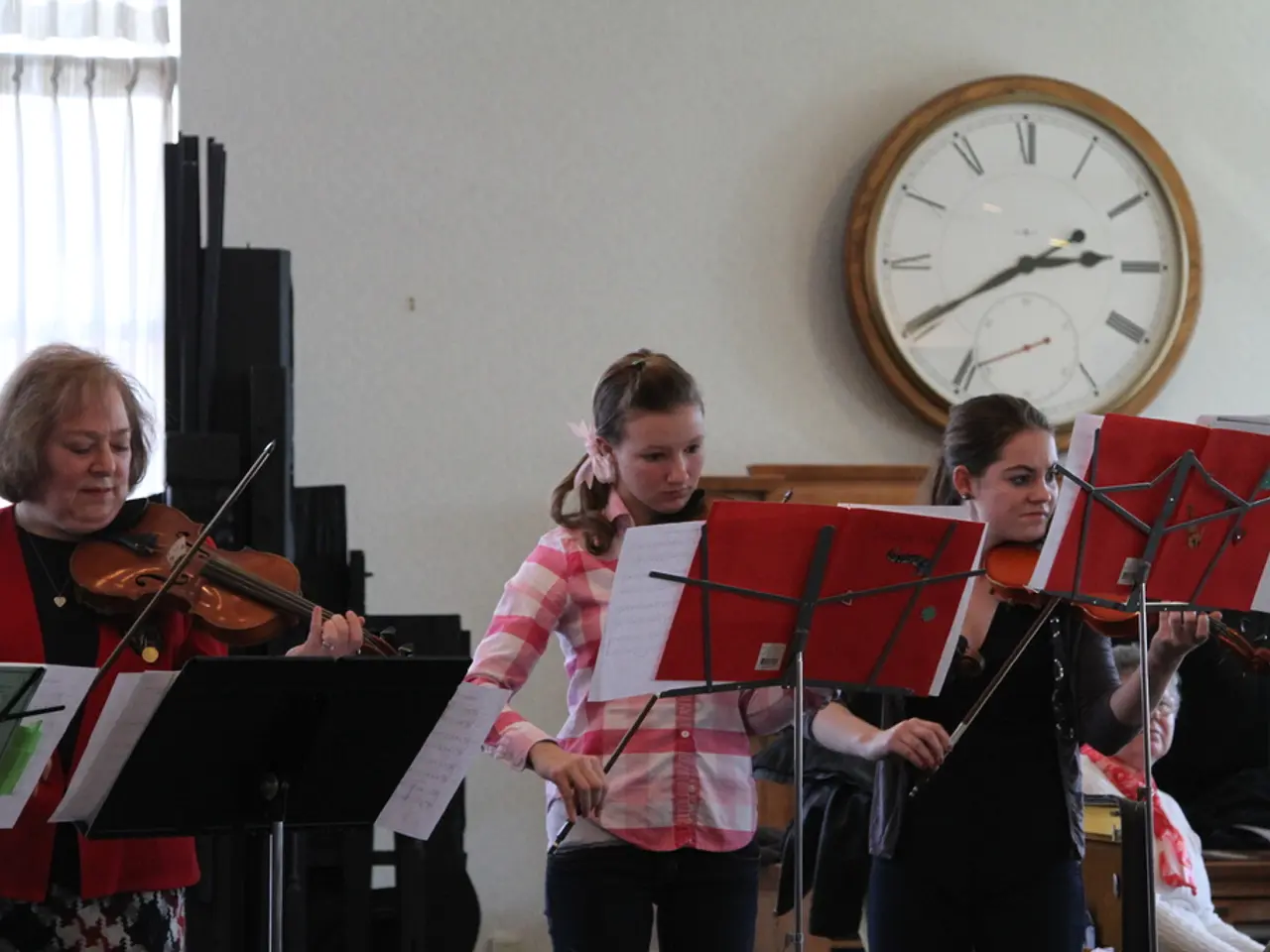Worldwide Audience Gathers for the Indo-Persian Music Union Event
UCLA's "Indo-Persian Musical Confluence" Celebrates Cross-Cultural Musical Heritage
The University of California, Los Angeles (UCLA) hosted an enlightening series titled the "Indo-Persian Musical Confluence" from November 2020 to May 2021. This series, organised by UCLA's Herb Alpert School of Music's Department of Ethnomusicology, delved into the rich historical and cultural intersections between Indian and Persian musical traditions.
Over eight virtual panels and performances, the series highlighted the deep connections and shared influences that have evolved over centuries, reflecting the movement of people, ideas, and artistic practices across South and Central Asia. The events served as a platform for scholars, musicians, and artists to come together and share their knowledge, fostering a vibrant atmosphere of cross-cultural engagement.
Highlights of the Series
The series featured a diverse range of events, including live performances, scholarly lectures, and panel discussions. Notable performances included Ustad Naseeruddin Saami and his sons (from Pakistan), Homayoun Sakhi (from Afghanistan), the Saznawaz Family (who performed from Kashmir), and Rahul Neuman (sitar, UCLA) and Naghme Sarang (kamancheh, UCLA).
Scholars from various disciplines, such as ethnomusicology, history, and South Asian/Persian studies, contributed to the series with their insights into the theoretical, cultural, and historical dimensions of the Indo-Persian musical exchange. Some of the topics covered included "Indo-Persian Musical Hybrids in Afghanistan," "Persian Poetry in Indian Music," "Modal Negotiations," "Indo-Persian Texts on Music," "the Qawwali Tradition," and "Indo-Persian Music Histories."
One of the series' standout events was the performance by Sumeet Anand, showcasing a Dhrupad performance. Another memorable event was the discussion chaired by Peter Manuel (CUNY) that featured Wajiha Naqvi (singer/scholar, Karachi, Pakistan), Dhruv Sangari (singer/scholar, Delhi, India), Shahwar Kibria Maqhfi (UCLA), and a performance by Saami Brothers Qawwal.
A Holistic Approach
The series combined ethnomusicological research with live music, offering a holistic perspective on the musical confluence. It often integrated history, language, literature (including Persian and Urdu poetry), and performance practice. The series also encouraged dialogue between musicians and scholars from India, Iran, and other regions influenced by these traditions, providing comparative analyses and enriching the understanding of both musical systems.
Public Education and Global Participation
In addition to its academic focus, the series served an educational purpose for the wider UCLA community and general public, raising awareness of these intertwined musical cultures. The symposia attracted participants from across the globe, including Europe, Central Asia, the Indian subcontinent, Canada, and numerous regions within the United States.
The "Indo-Persian Musical Confluence" was hosted and sponsored by the Center for Musical Humanities, and co-sponsored by several partners, including the Mohindar Brar Sambhhi Chair in Indian Music, the Jahangir and Eleanor Amuzegar Chair in Contemporary Iranian Studies, the Program of Iranian Studies, the Center for Near Eastern Studies, the Center for India and South Asia, and the UCLA Department of Ethnomusicology.
Curated by Mohsen Mohammadi
Mohsen Mohammadi, a Postdoctoral Scholar, curated the whole series, collaborating with scholars and musicians to provide a remarkable line of events. Professor Anna Morcom of Ethnomusicology and the Mohindar Brar Sambhi Chair in Indian Music at The UCLA Herb Alpert School of Music spearheaded the series.
The BBC Persian News even featured an article on the history behind the sitar and setar, the most common instruments in Indian and Iranian music, noting that the names of both instruments are the same as the Persian name 'se-tar,' which means three-stringed.
The "Indo-Persian Musical Confluence" stands out as a vibrant platform for celebrating and critically engaging with the intertwined musical heritage of Persia and India, illuminating their shared artistic legacies and contemporary expressions. More events are being planned in this series, and further information can be found on the webpage of the Indo-Persian Musical Confluence.
- The series, consisting of live performances, scholarly lectures, and panel discussions, showcases the connection between music and education, as it provides a platform for learning about the rich Indo-Persian musical heritage and the historical, cultural, and theoretical dimensions of this musical exchange.
- The cross-cultural events, including the discussion chaired by Peter Manuel and the Dhrupad performance by Sumeet Anand, demonstrate how entertainment and travel intersect, as musicians from various countries come together to share their art and create a unique cultural travel experience for participants.
- The holistic approach of the "Indo-Persian Musical Confluence" encompasses not only music but also language, literature, and history, reflecting the importance of lifestyle and self-development in better understanding the fusion of Indian and Persian musical traditions.




